An Illustrated History of Old Sutton in St Helens, Lancashire
Part 79 (of 95 parts) - Memories of Sutton Part 29
The Memories section is compiled by Stephen Wainwright Contact | Memories Index
Introduction: Memories of Sutton is a series of recollections of Sutton's past that have been contributed by visitors to this website. If you have any memories or personal experiences - perhaps from your childhood - that you'd like to share, do please contact me. I'll be delighted to hear from you! SRW
‘A Journey Along Life’s Highway’ by Norman Edwards
An Illustrated History of Old Sutton in St Helens
Part 79 (of 95 parts) - Memories of Sutton Part 29
Memories of Sutton Complete Articles List
Compiled by Stephen Wainwright ©MMXX
Compiled by Stephen Wainwright ©MMXX
Introduction: Memories of Sutton is a series of recollections of Sutton's past that have been contributed by visitors to this website. If you have any memories or personal experiences - perhaps from your childhood - that you'd like to share, do please contact me. I'll be delighted to hear from you! SRW
’A Journey Along Life’s Highway’ by Norman Edwards
An Illustrated History of Old Sutton in St Helens
Memories of Sutton 29
Researched and Written by Stephen Wainwright ©MMXX
Introduction: Memories of Sutton is a 29-part series of recollections of Sutton's past contributed by visitors to this website. If you have any memories or personal experiences that you'd like to share, do please get in touch.
‘A Journey Along Life’s Highway’ by Norman Edwards
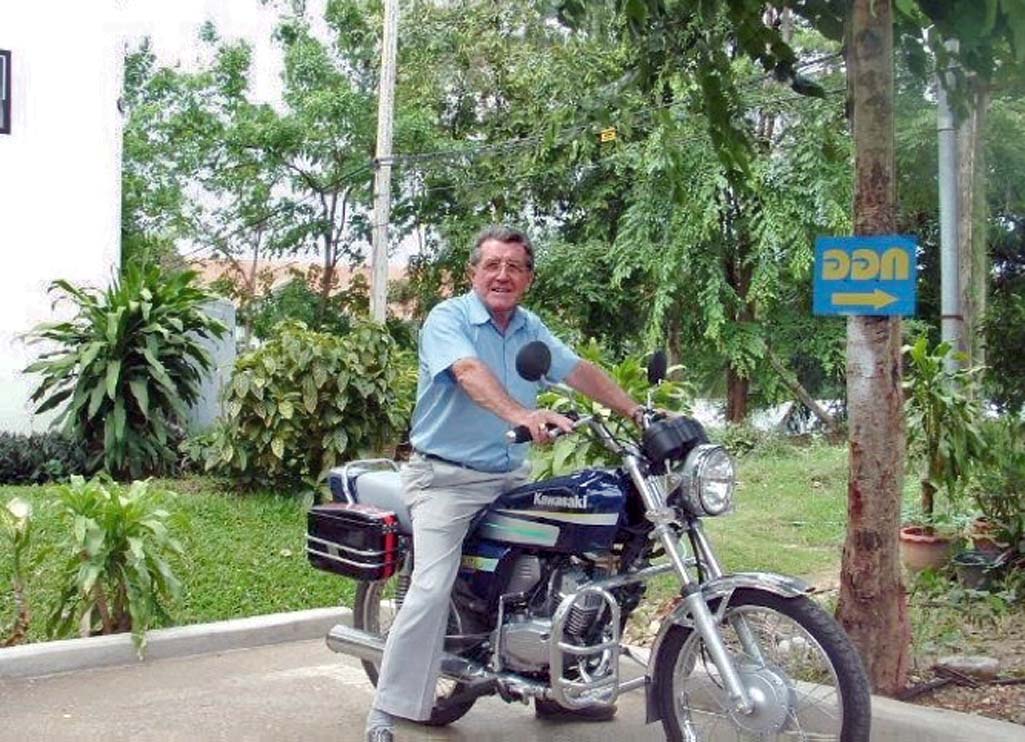
Sutton-born Norman Edwards in Thailand where he has lived for much of his life

Norman Edwards in Thailand where he's lived for much of his life

Norman Edwards at home in Thailand
I can best describe my early childhood living at 91 Lee Street (which later became part of Hoghton Road) as a period of self-made mini adventures. As this was a time when there was no television, weather permitting, I spent very little time indoors and in fact I only thought of my house as a place for eating and sleeping.
My house in Sutton was only a short walk from the countryside which can best be described as Nature's Classroom because every day I learned something new there. Part of this area was Sutton Moss, a large area of peat bog, unfit for cultivation, from which selected parts had been cut, dried and used as fuel. The actual cutting of the peat had, over the years, produced areas where ground water was abundant and I often returned home somewhat wet to face the wroth of my mother.
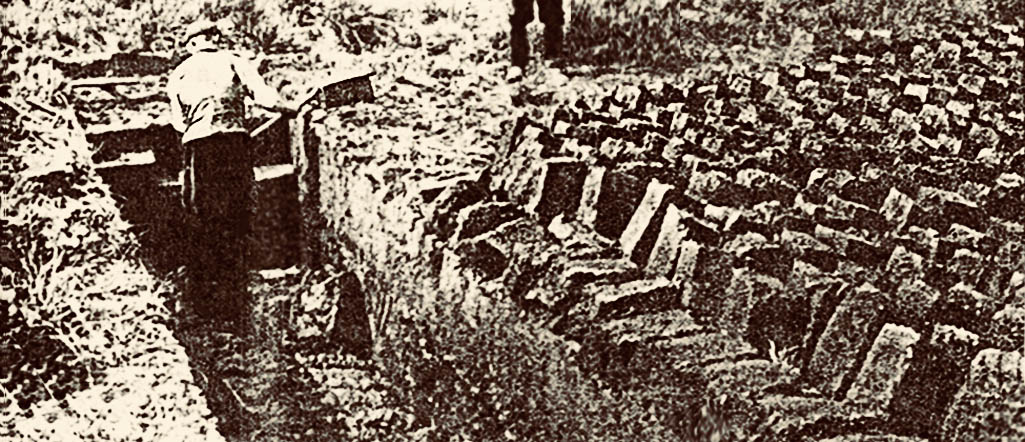
Turf cutters at work on Sutton / Bold Moss – the peat turf was used as firelighters or animal bedding litter

Peat turf cutters at work on Sutton / Bold Moss from around 1900

Turf cutters at work on the moss
In my early years one thing I am sure of was being oblivious to the dark clouds of war that were gathering over Europe. I had just turned 4 years of age and was about to start the conventional side of my education with my entry into Sutton National Junior School when those clouds burst, resulting in the outbreak of the Second World War.
THE WAR YEARS – An Introduction Into Reality – Those early years of the war were, at first, to me and I am sure most other children of my age, a time of adventure because each individual day was totally different. I had by this time started school and quite often our academic lessons were interrupted by Air Raid drills during which time we had to leave the classroom and make our way as quickly as possible to the nearest air raid shelter. I can't remember any time it was anything other than a drill because most enemy bombing raids were carried out under the cover of darkness. Many days I was able to witness, high in the sky, British Fighter planes intercepting and on a few occasions succeeding in shooting down German reconnaissance planes.
In those earlier days there was a fear of a gas attack so everyone was given a gas mask, contained in a small cardboard box with a shoulder strap, a length of string, enabling it to be carried with you all day. Each day walking to school, carrying my gas mask slung from my shoulder, alongside adults also carrying gas masks going to their different destinations, somehow gave me a feeling that I was part of the war and in reality it wasn't a game.
This realisation was strengthened by the arrival of the evacuees, youngsters who had left the danger of indiscriminate bombing, resulting in death and destruction in the southern part of Britain, for safety in other parts of the country. In the days which followed listening to those young people's accounts of the horror and sadness, because some of them were now orphans, made me realise that I had had a relativity easy life up to now.
One of my meagre contributions to the war effort was that many evenings I would sit at the top of a tall building, alongside my father, scanning the night sky for approaching German bombers and when we saw any we would sound the air raid siren, warning the people of incoming danger and to take shelter. My father and I would stand there and watch the flashes and hear the sound of the bombs raining down on nearby Liverpool. This activity and many more, along with the accounts of the evacuees changed me, in a relatively short period of time, into a young person who realised that playtime was over and there are no winners in war as everyone is a casualty in one way or the other.
During those early war years, compared to many other parts of the UK, St Helens was a relatively safe place but we did not totally escape the aerial bombings, as there were a number of factories involved with arms manufacturing in the area. However, I am sure that some of the bombs that fell were a result of an occasional German Bomber releasing his bombs just before he reached his intended target – the docks of nearby Liverpool – because of the heavy anti-aircraft coverage or being intercepted by British fighters.
On the outbreak of the war each household had been given pre-formed sheets of corrugated iron to assemble and form an air-raid shelter. My father had dug a large hole in the yard behind our house in which he had assembled our shelter so our air-raid shelter was below ground level. In it, he had constructed bunk beds, a coke burning stove and an electric light from a lead connected from the mains in our house and for the duration of the German aerial bombardment, every night was spent in our air-raid shelter.
On those nights I was not helping my father on air raid watch duty, I would lie in our air-raid shelter and I would drift off to sleep listening to the German aircraft flying overhead on their way to deliver their load of bombs upon the city of Liverpool. The sound of aircraft overhead along with the barking of the anti-aircraft gun, located at the end of our street firing into the air, the whistling of falling bombs and their subsequent explosions became my lullaby into the world of sleep.
There was one occasion when I was awakened by a very loud bang and I knew that a bomb had landed close by. The next morning I discovered the result of the previous night's explosion. About two hundred yards from our house was an area, the Pens, that some of the local men were using as plots to grow vegetables and also to raise chickens. Well, the bomb had landed in the middle and the thing I remember was not so much the damage that had been caused but the number of chicken feathers lying around. However; no matter how many bombs fell I still had to go to school the next day because nothing was allowed to stand in the way of education.
Another one of the many things I clearly remember was an incident that happened after the United States had entered the war and by this time the bombing of the U.K. had ceased. About 15 miles from my house was the very large United States Air Force base at Burtonwood and every evening I would stand at the end of our street and count the number of aeroplanes flying overhead on their way to bomb Germany. The following morning I would count the number of returning planes to see if any had been lost.
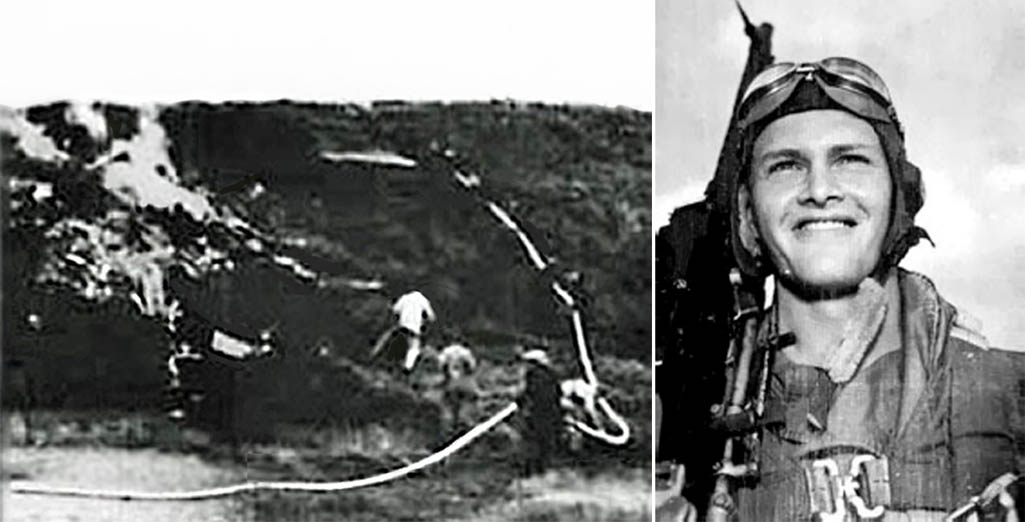
An image of the Battery Cob air crash and T/Sgt Leo E Lovasik, who was one of the B24 Liberator bomber's crew

Battery Cob air crash and T/Sgt Leo E Lovasik, one of the B24 plane's crew
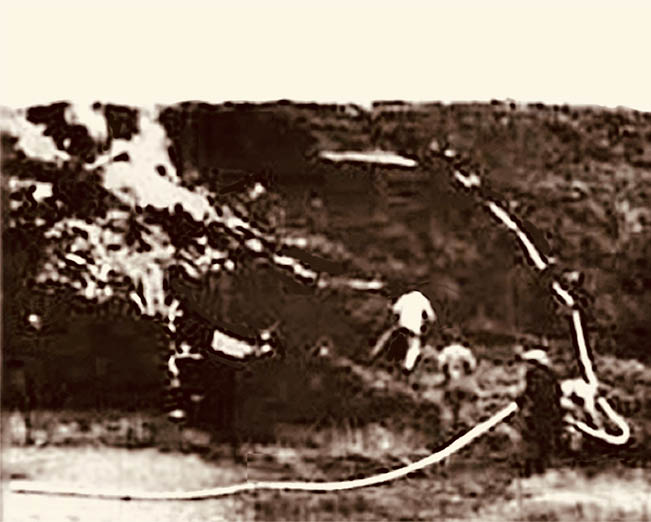
The Battery Cob crash scene
I, along with some other people, got as close to the crash as possible but I remember the heat from it stopped anyone getting too close. All that I could do was to stand and look at what was left of the plane. Of all the things that happened that particular morning – the thing which stood out the most – was the sight of two dead bodies lying near to the plane. My introduction to death through war.
This along with all the other activities, related to growing up in a country at war and under siege, tended to make everyday school attendance seem rather mundane. Subsequently my memory of actual school activities during these years is rather vague, however, the actual method of getting to school and returning home was, as I am sure, quite different from that of today's student. My school was just over 2 miles from my house and in the mornings I was given two pennies of which one was to be used as bus fare to the school and the other for the return journey after school was over, with one condition attached.
In the morning I had to go to school on the bus to make sure I was not late, however I could only return home by bus after school had finished if it was raining. Otherwise it was a case of walking home and upon arrival give the remaining penny back to my mother so it could be used again the next day. By the way if it was only light rain or drizzle, I had to walk home because my mother used to say “A little rain never killed anyone.”
Along with all the other memories associated with that period in my life the perpetual feeling of hunger still remains quite strong. Food rationing began in 1940 and was to continue until 1950. During that 10 year period, each family was given Ration Books containing stamps showing how much or how many, according to the number of family members, different items of food and weight you were restricted to per week and when you went to buy an item you had to give the shopkeeper a stamp showing just how much you were entitled to.
I also remember learning the hard way that there really was a shortage of food. Occasionally during those times, when my mother put my meal on the dining table I would say, as I think many children have a tendency to do, “I didn’t like it and I want something else to eat.” Upon hearing this my mother, not saying a word, would put a cloth over the plate and put the meal away until the next meal time when once again it was placed in front of me with a warning that I would not get anything else to eat until I had finished what was on my plate. I very quickly learned that you don't waste food. However I am happy to say that thanks to the generosity of one of my uncles, Sunday dinner was an exception.
Uncle Albert Hawley was quite a successful businessman in Sutton and his company joiner, builder and undertaker was pretty well established. Being the eldest son in our family every Sunday morning after attending the Sutton Methodist Chapel I would go to Uncle Albert's house in Lionel Street for dinner which to me was a feast consisting of roast beef, vegetables, roast potatoes and brown gravy, followed by desert.
After dinner I had an additional treat of going into the living room and watching television. Those days very few people could afford a television set, but Uncle Albert had one! The thing I remember the most was that the set was small and a large magnifying glass was in front of the screen for better viewing. Incidentally the pictures were only in black and white. In the evening I would return home with a feeling that the world was not all that bad.
THE END OF THE WAR – Tuesday the 8th of May 1945, two months short of my 10th birthday, was to be a day of celebration and thanksgiving. Earlier that day the BBC had announced, over the radio that the war in Europe had ended with the unconditional surrender of Germany. For me, as far as I can remember, the most important part of that day was the news that all schools were to be closed until Monday the following week. So along with my school friends it was a signal to join the adults in a mass celebration.
The next day was a public holiday under the title VE Day (Victory in Europe Day) and it was time to celebrate. By now the festivities were beginning to be a little more organised than that of the previous day. The streets – along which the military bands were marching followed by people dancing – were lined with a sea of people waving their small Union Jack flags, singing, laughing and in some cases crying – which at the time I didn't understand, as it was also a time for those whose love ones hadn't made it to remember them. All of these emotions were wrapped up in the knowledge that hostilities had ceased and peace was no longer just around the corner – it was acutely here.
The week of celebrations came to a close on the weekend with a nationwide “Street Party”. Along the centre of each street was a row of tables on which, to my eyes, mountains of food had been placed. How the parents had been able to achieve this is a mystery to me because all through the war years there had been very strict food rationing and no one left the table at meal times feeling full. There was always room for more but there wasn't any more until the next meal.
Now, for one day only, all of this was forgotten and it was a time to eat and be merry. Our party was held in Jane Street because it was the widest road near to my house. During the rest of the following week things began to normalise and soon it was time to go back to school which brought me back to reality with a bang.
PREPARING FOR THE FUTURE – Cementing Foundations – By now my junior school days were over and it was time to enter the local high school in Robins Lane. On reflection it was there and other contributing actions at that time that the true foundations of preparing for the outside world were truly cemented. During this period there were two main contributions which have, over the years, played predominant roles in my life. The first came from my father in which he showed me, by example, that no matter how insignificant a task seemed to be the only way to carry it out was by giving it a 100% effort.
My father – due to the fact that he was deaf and as a result occupation choices were limited – was employed as a street cleaner, which to some was looked upon as a menial line of work. To him not so, he was very proud of the fact, so he claimed, that his streets were the cleanest in the Sutton area and many times he gave more than that 100% to substantiate this claim. On occasions, when I was a little older, I would go out with him very early in the mornings to put grit on the roads when they were icy in an effort to get them ready for transport in the coming day.
In addition he also taught me the value of money and its responsibilities. I was 12 years of age when I had the idea of joining the local cycling club, but first I would need a bicycle. After much persuasion (my begging) my father decided to buy me a bicycle. However there was a proviso, I was to get a part time job and pay my father back, so I became a newspaper delivery boy.
This meant getting up around 5am in the morning, collecting the newspapers from the railway station, taking them to the shop (on the corner of Jane Street and Cecil Street) to be sorted and then delivering them by bicycle to certain residents in the local community. After that it was time to return home, have breakfast and get ready for school. The first part of this procedure was repeated in the evening, Mondays through Saturdays.
Because there were no evening papers on Sundays, I would stop at each house during the morning delivery and collect the money for the week's previous deliveries. Upon completion of the paper round, I returned to the shop and gave the money to the owner of the newspaper shop. After everything had been accounted for, I was given my weekly wage and I returned home. After handing my entire wage to my father he would deduct a large percentage as part payment towards the cost of my bicycle and give me the remainder as pocket money. So I learned that you had to earn all your possessions, even your pocket money, and in this world nothing was to come free.
Another thing I learned, this time from my grandfather's weekend activities, was that things were never as bad as they seemed to be and could be best viewed with a good sense of humour. In addition to being a coal miner, Lott Kitts was a preacher at the Independent Methodist Chapel in Herbert Street. Every Saturday night he would stand with a few of his friends in front of the police box at the top of Junction Lane and preach the Gospel to anyone passing by who bothered to listen. I accompanied them but I hasten to add it was not by choice. It was at 10pm and to me, it was the time for the fun to begin. To our right stood the Prince of Wales pub and as it was closing time, some of the more drunken customers would spill out onto the street and a fistfight would commence.
This was the signal for my grandfather to spring into verbal action. He would rant and rave at the top of his voice telling the men who were fighting and the people standing that were cheering them on, that God would strike them down with fire and brimstone and they would all finish up in Hell. Nobody took any notice of him and eventually the fighting was over and everyone went home. Our small group also departed with the knowledge that next Saturday night would be the same all over again. Looking back it was more entertaining than anything you will see on today's television!
The second of the two main contributions came from my secondary school academic education. I attended Robins Lane Boy's School where the foundations of the basic academic fundamentals of education were well and truly laid and at the time I didn't realize how important they were to become later in life. Robins Lane was somewhat different from today's secondary schools in a way that its curriculum was based upon quality learning not quantity learning. By that I mean the limited number of subjects taught had been selected to meet the essential fundamental skills a person would require to be fully competent and successful, no matter what path they took through life.
I suppose that the most basic of these skills obtained were the "Three Rs", Reading, Writing and Arithmetic. We never pronounced the "A" in arithmetic and mastering these three subjects made the studying of other subjects easier. Not only were academic subjects taught but the students learned the additional fundamentals of what could be called Household Skills. One day a week the older boys would make the short journey to the adjacent girls' school to learn the art of cooking. We had been told, the previous week, the ingredients that we were to bring – for want of a more suitable description – to cook. So under the watchful eyes of the teacher, we began.
The antics and progress in the weeks that followed would have made a very popular TV comedy show today. Well, by the end of the course, I had become proficient enough in the art of preparing a dish to be able to take one home for my father – who was the only one in our family with enough courage to try it – was able to eat my offering without becoming ill.
The school had also introduced an activity which would give the students who were about to graduate an opportunity to see the workings of various professions which would be open to them on completion of their formal education. I was given the opportunity to see three of these places. The first I was to visit was a local coal mine. Both of my grandfathers had been miners and I thought it would be interesting to see and experience those things that had played important parts in their lives.
The mine shaft that we went down was one of the mine’s deepest. After reaching the bottom of the shaft we made our way along the tunnel close to where the men were working, not too close because they were still using explosives. It was very hot and dirty and although it was interesting to see the miners at work I was glad to return to the surface and after taking a shower I decided that working like a human mole was not for me.

At the front of each press were gigantic rolls of plain paper and when everything was in place the press was started and the paper began to roll. I followed its progress until its completion, as from the other end of the processing line came a completed newspaper. It was then bungled up ready for delivery to its destination. All very interesting but once again I decided that was not the career path I wanted to take.
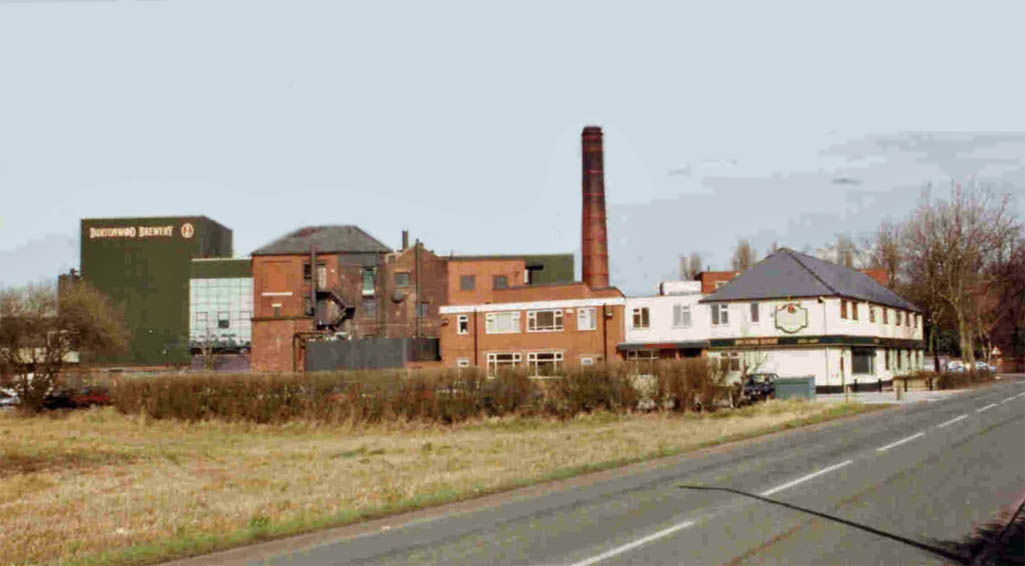
Regarding the actual beer making process it didn't seem to be all that complicated and it all started in the Mixing Room. There the four main ingredients, barley, hop, yeast and water, eventually emerged as liquid amber or in other words beer, which was put into barrels or bottled ready for distribution. Once again it was not the path of employment I wished to take.
After the trip to the brewery it was a case of returning to school and the continuation of studies until graduation. Eventually that day came but there was no formal graduation ceremony. It was if I had entered school that morning as a student and left in the afternoon a young adult with the realisation that the door to the adult world had just opened. So at the age of 15 it was time to step through and see what was on the other side.
Those crucial first 15 years of my life had taught me much. With regards to my conventional education, a very comprehensive foundation had been lain, one which would enable me to build upon throughout the years to come. However, the most important lesson came from the people around me. All during those war years and the hardships they brought, I had never witnessed any signs of self-pity or pessimism, only a determination to carry on regardless and never look back, always look ahead. They had truly contributed to the Great in the name Great Britain and had given me an indelible legacy to try and follow.
NORMAN EDWARDS (Thailand)
Next: Part 80) Can You Help? | Back To Top of Page
Copyright Notice / Factual Accuracy Statement
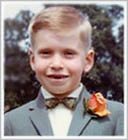
This website has been written and researched and many images photographed by myself, Stephen Wainwright, the Sutton Beauty & Heritage site owner. Individuals from all over the world have also kindly contributed their own photographs. If you wish to reuse any image, please contact me first as permission may be needed from the copyright owner. High resolution versions of many pictures can also be supplied at no charge. Please also contact me if you can provide any further information or photographs concerning Sutton, St.Helens. You might also consider contributing your recollections of Sutton for the series of Memories pages. Sutton Beauty & Heritage strives for factual accuracy at all times. Do also get in touch if you believe that there are any errors. I respond quickly to emails and if you haven't had a response within twelve hours, check your junk mail folder or resend your message. Thank you! SRW
This website is written and researched by Stephen R. Wainwright ©MMXX Contact Me


